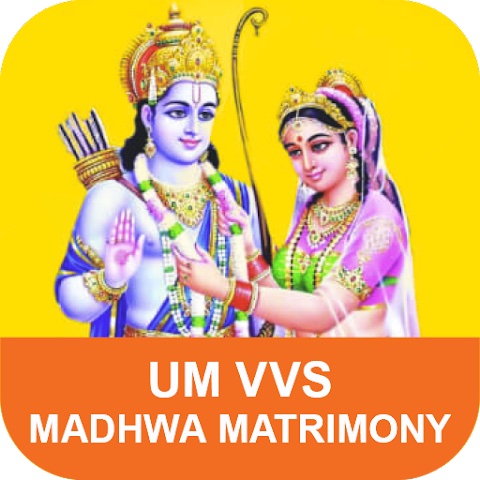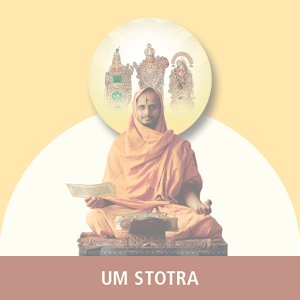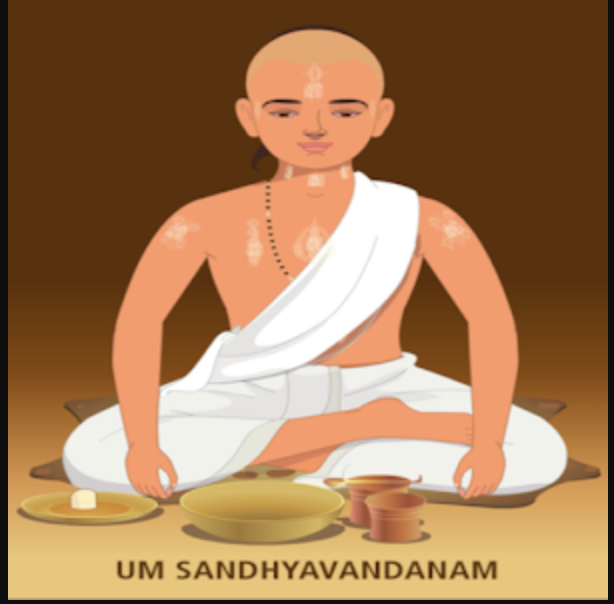Purchase UM panchanga/publications online at vmmp.org
Dvaita Vedanta
By the order of Krishna Dvaipayana himself, Sri MadhvAchArya a.k.a Sri Ananda Tirtha Bhagavatpadacharya revived this age-old Vedic tradition which was obscured before his appearance on this earth. The philosophy of MadhvAchArya, based on this Vedic tradition, became popular by the names Dvaita Vedanta or Tattvavada.
Vedanta is the backbone for the welfare of the Mankind. It is that boat, riding which, one can easily cross the ocean called samsAra[1]. It encapsulates in itself the entire Vedic literature along with its tradition and practices. The Supreme God reveals this divine knowledge at beginning of every creation cycle. The brave and the intelligent who sacrifice everything to understand the absolute truth are blessed with this divine knowledge in the form of revelations during deep meditation. We are very fortunate that our ancestors had the courage and intellect to search for this absoulte truth. The thoughts, experiences and instructions of our ancient seers who have thus realized the absolute truth are available to us in the form of Vedas, Upanishads, Agamas, Ithihasas and Puranas.
All this literature is made available to us with a specific purpose - to provide an opportunity for the noble souls to realize the absolute truth. But it is not easy to get the true essence of this vast wearhouse of knowledge. There are many who have attempted but failed. They were confused and added more confusion to the problem instead of suggesting a solution. Luckily for us there is one particular tradition called the BhAgavatha sAmpradAya of the ancient Pancharatra Tradition, which has preserved the essence of the entire Vedic literature and makes it available to us in its purest form.
By the will of the supreme God, this tradition flourished and was widely spread for a long long time. Time and again, the supreme God, incarnated to save this tradition from being wiped out completely from the earth. During the dvapara yuga, He came to earth as Sage Krisha Dvaipayana a.k.a Veda Vyasa to protect and enliven this tradition. The tradition sprung back to life during his time. It continued unabated until the advent of the age of Kali, during which time it was pushed to a corner by evil forces prevailing at that time.
By the order of Krishna Dvaipayana himself, Sri MadhvAchArya a.k.a Sri Ananda Tirtha Bhagavatpadacharya revived this age-old Vedic tradition which was obscured before his appearance on this earth. The philosophy of MadhvAchArya, based on this Vedic tradition, became popular by the names Dvaita Vedanta or Tattvavada.
Main Tenets
The following are some of the main tenets of the philosophy of Sri Madhvacharya:
- There is only one God for the entire universe
- He is the supreme power above everyone.
- He can be rightly known only through the Vedas and ancillary scriptures called the sadAagamAs
- In the utmost sense all names point to Him. Brahman, Vishnu, Narayana etc are some of his important names.
- Knowing God and attaining his grace is the primary goal of mankind.
- God’s grace can be achieved through Knowledge, Bhakti and Vairagya.
- God removes the bondage (ignorance) and grants liberation to eligible souls.
- The world, which is created by God, is real; The world consists of basically three types of entities - Isa - God, Jiva-Souls and Jada-Matter.
- The Souls are the servants of the God and remain so even after attaining liberation.
- There exists pancha bheda (five fold difference) between Isa, jIva and jaDa.
- There is a gradual gradation among different souls called Taratamya.
- Liberation is the state of experiencing eternal bliss according to one’s own nature after the material bondage is removed.
What is the basis?
A common question one might ask is - What is the basis for the mAdhvA philosophy?
mAdhvA philosophy bases its doctrines on a set of valid, authoritative Pramanas . These pramANas help us in understanding all aspects of the universe such as creation, its purpose, the goal of mankind and how to achieve it. The strength of mAdhvA philosophy is in its sound, comprehensive system of pramANas. Many other schools of thought have totally ignored some of the valid pramANAs or based their theories on invalid ones. Handicapped by this, they drastically failed to present the right picture or sometimes were only able to present the wrong one.
We are surrounded by a universe, part of which is directly perceivable by our sense organs. There is also another part which is not directly perceivable. That part of the universe which can be directly perceived falls under the purview of Pratyaksha Pramana. The other part which cannot be directly perceived falls under the purview of Anumana or Agama Pramana. Past experience through Pratyaksha or Agama is a pre-requisite for anumAna. So, it cannot operate independently on objects which cannot be directly perceived. In order to independently gain knowledge about things which are not directly perceivable, we have to rely on Agama PramANa only.
In summary, we cannot rely on a single pramANa for knowledge about everything around us. Some objects exclusively fall under the purview of one pramANa and some others to another pramANa. So, we have to apply the most suitable pramANa to gain knowledge about a particular object. For e.g we apply pratyaxa pramaNa to gain knowledge about the objects which are in contact with our senses. We apply Agama pramaNa to gain knowledge about entities like God, Dharma, Adharma which are not directly perceivable by our ordinary senses. Sometimes, there is also a possibility of a clash of two pramaANas, in which case the dispute is to be resolved according to the prabala pramAna or stronger pramaNa. For e.g A child infers that fire is cold because it is an object. This is disputed by the pratyaxa ‘Fire is hot’ which is known by touching the fire with his hands. As pratyaxa pramANa is stronger than anumAna, the dispute is settled by taking the account of pratyaxa pramaNa and rejecting that of anumAna.
The uniqueness of mAdhva philosophy is that all its theories are perfectly based on and are in full agreement to the right pramANAs w.r.t the objects under consideration. Therefore, mAdhva philosophy is successful in providing perfect and unadulterated knowledge about this Universe.






